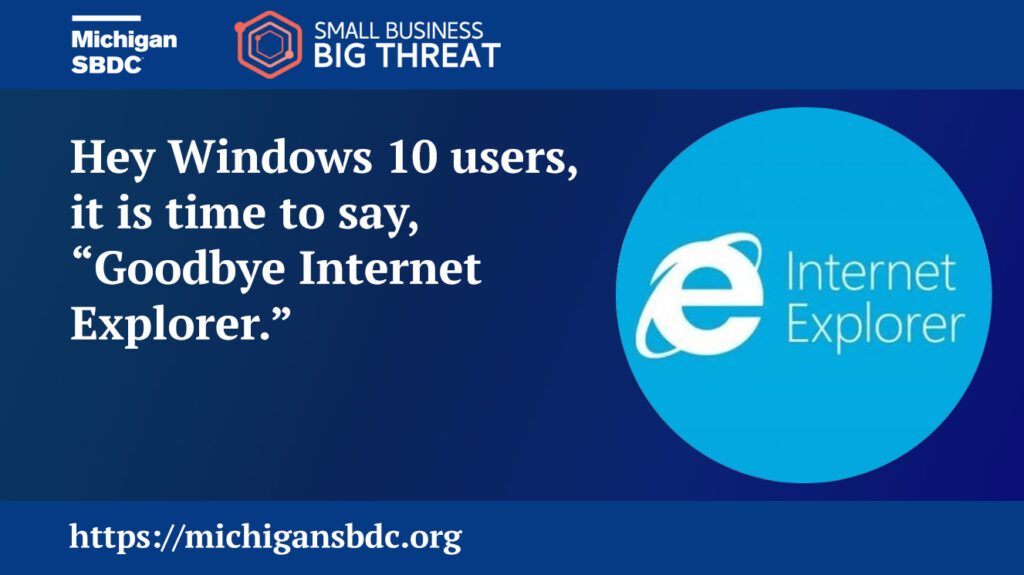
Hey Windows 10 users, it is time to say, “Goodbye Internet Explorer.” Everyone’s most favorite web browser will be removed from most Windows 10 devices starting today with the latest Microsoft Windows 10 update. Microsoft writes more about this switch and what is going to happen for all of you Internet Explorer 11 (IE) users. Microsoft does suggest not uninstalling IE 11, but to let the Microsoft Windows Update service perform the update. This will help ensure a smooth transition.
Why say goodbye?
Microsoft discontinued support for Internet Explorer 11 on June 15, 2022. This means it was no longer going to receive updates, including important security updates, any longer. When a web browser no longer receives updates, it instantly becomes a risk to use. Any new vulnerability discovered would be left unpatched, allowing cybercriminals to exploit all new vulnerabilities. As we use web browsers for virtually all online interactions, this poses a significant risk to our devices, networks, and data.
Keep things up to date
This is a great reminder that keeping your software and hardware up to date plays an important role in protecting your small business. In many cases, software updates are free and can be automated. For the most part, it is usually safe to allow for automatic updates, but on devices that are mission critical, it is better to test the updates prior to updating all devices. This way if the update does break something, you should be minimally impacted.
Here at Security Bytes, we previously wrote, “One of the often overlooked cybersecurity musts are updates. More than 90% of updates address cybersecurity vulnerabilities in software. It is also important to make sure you update your hardware regularly too. This can mean applying firmware updates to your devices or purchasing new devices to replace older ones. Hardware updates include your modems, routers, printers, IoT devices like security cameras or thermostats, as examples.”
Goodbye Internet Explorer and for more information on cybersecurity, check out our other Security Bytes!